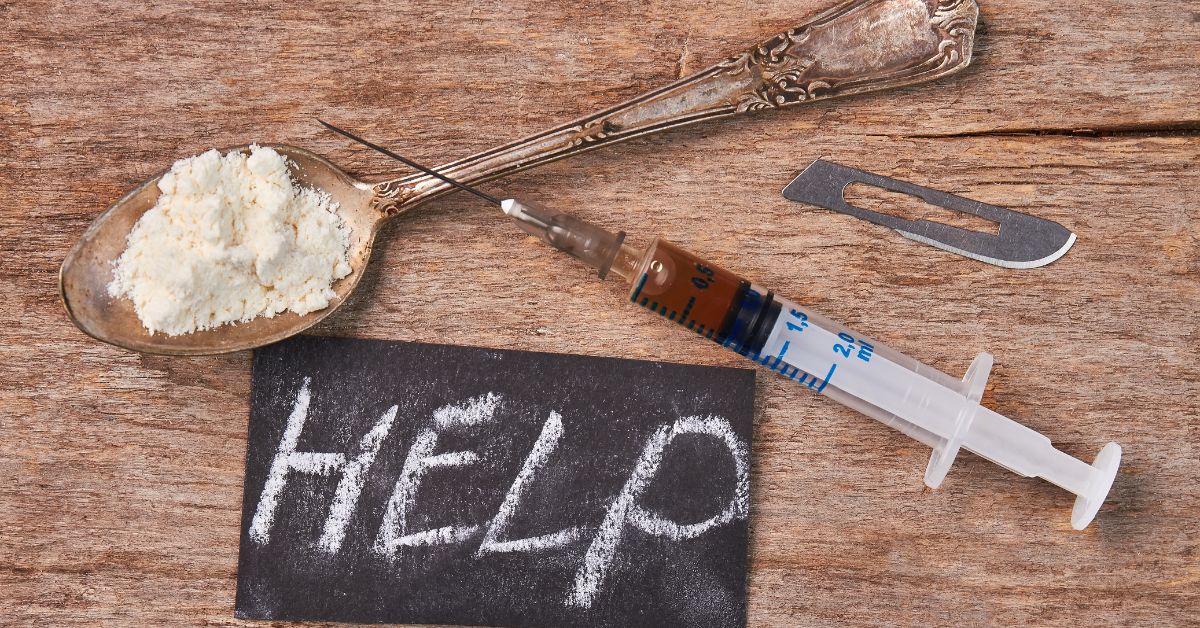If you’ve found yourself here, it’s possible that someone you care about is suffering from addiction…a battle that is as complex as it is challenging.
As an addiction expert, I’m here to offer you insight and hope. Addiction isn’t a solitary struggle; it casts ripples that touch the lives of families, friends, and entire communities.
Together, we’ll explore the far-reaching impact of substance use disorder, from the emotional burdens to the financial strains, and beyond. But most importantly, we’ll talk about the power of support, recovery, and the light at the end of the tunnel.
So, let’s begin this journey of understanding and healing.
How Drug Addiction Affects the Family and Loved Ones

When someone is battling substance abuse, the effects are felt far beyond the individual. Like a pebble dropped into a pond, the ripple effect extends outward, often leaving family members feeling overwhelmed, heartbroken, and unsure of how to cope. As we explore the various effects of addiction on the family, it’s important to remember that each family is unique, and no two experiences are identical. Yet, there are common threads that unite these experiences; the emotional, financial, and generational impacts that are often felt deeply by loved ones.
WATCH: Free, confidential workshop that explains how to "Love Another Way"
Emotional Impact on Family Members
Living with or caring for a loved one with addiction often comes with a heavy emotional toll. Family members may find themselves grappling with a whirlwind of emotions, ranging from fear and anger to guilt and self-blame.
| Aspect | Impact |
|---|---|
| Emotional Burden | Fear, anger, guilt, and frustration |
| Family Dynamics and Relationships | Tension, breakdown in communication, and strained relationships |
| Mental Health Challenges | Anxiety, depression, and chronic stress |
- The emotional burden of dealing with a loved one’s addiction: Feelings of fear and worry are natural when a loved one is struggling with addiction. Will they be okay? What if something happens to them? Alongside these fears, family members fight with feelings of anger and frustration. Why won’t they stop using it? Why do they keep hurting themselves and others? And amid all of this, it’s not uncommon for them to feel guilty, wondering if they’ve done enough to help or if they’re somehow to blame.
- The impact of addiction on family dynamics and relationships: Addiction can be a source of tension and strain within families, causing disruptions to daily routines, increased conflict, and breakdowns in communication. Trust can be eroded as the person may engage in dishonest or secretive behaviors to sustain their substance use. Relationships that were once rooted in love and support may become fraught with frustration and distance.
- Mental health challenges faced by family members: The stress of coping with a close one’s addiction can take a significant toll on the mental health issues of family members. Anxiety, depression, and chronic stress are common, and loved ones may find themselves feeling isolated and alone in their struggles.
How Drug Addiction Affects the Children
In families where a parent or caregiver is dealing with addiction, children are often the most vulnerable.
- The specific emotional and developmental challenges faced by children of addicted parents: Children may undergo feelings of confusion, fear, and sadness. They may internalize blame for their parent’s drug and alcohol abuse and feel responsible for “fixing” the situation. Developmentally, children may struggle with forming secure attachments and may exhibit behavioral or emotional difficulties.
- Effects on children’s academic performance and social interactions: Children who grow up in homes affected by addiction might face challenges in school, including difficulties with concentration, academic performance, and social interactions with peers. The instability at home can create a sense of uncertainty that spills over into other areas of their lives.
Financial Impact on the Family
In addition to the emotional challenges, families often face financial hardships related to addiction.
- The economic strain of supporting a loved one’s substance abuse: Substance use can lead to financial instability, including the costs associated with obtaining drugs or alcohol, legal fees, and lost income. Family members and friends may find themselves dipping into savings, taking on debt, or making difficult financial sacrifices to support their loved ones.
- The financial challenges of seeking treatment and rehabilitation for the addicted family member: While seeking treatment is a crucial step toward recovery, the costs associated with rehabilitation programs can be a barrier for many families. Navigating insurance coverage, payment plans, and financial assistance options can be overwhelming, adding to the already-existing stress.
The Role of Family in Recovery and Support
Amid the challenges, family members play a critical role in supporting recovery.
- The importance of family support in the recovery process: The journey to recovery is often paved with ups and downs, making the support of family members invaluable. Families can provide emotional encouragement, assist in creating a stable and substance-free environment, and participate in family addiction programs to address underlying issues and improve communication. A supportive and compassionate family unit can be a beacon of hope for their close ones in recovery.
- Challenges faced by family members in supporting recovery: While supporting a loved one in recovery is a noble and vital role, it is not without its own set of challenges. Family members may face resistance or relapse from the person with addiction, leading to feelings of disappointment and discouragement. It’s important for families to set realistic expectations, practice self-care, and seek support for themselves as well, whether through family groups or counseling.
NEW: How to make the shift from "Mom Code" to prioritizing your own well-being
The Risk of Inter-Generational Addiction
The impact of addiction is not always confined to a single generation. In some cases, addiction patterns can reverberate through families, affecting children and grandchildren.
- The potential for addiction patterns to be passed down through generations: Children who grow up in homes affected by addiction may be at higher risk of developing issues themselves. The complex interplay of genetic predisposition, learned behaviors, and environmental factors can all contribute to the risk of intergenerational addiction.
- The role of family environment and genetics in the development of addiction: While genetics can play a role in an individual’s susceptibility to addiction, family environment is also a key factor. Children who are exposed to substance use, instability, and trauma may be more likely to turn to substances as an unhealthy coping mechanism later in life. On the other hand, families that break the cycle of addiction, prioritize healthy communication, and provide a nurturing environment can foster resilience in future generations.
The impact of addiction on families is multifaceted and profound, touching every aspect of life.
Yet, even in the darkest moments, there is room for healing, hope, and positive change.
Families, united by love and a common purpose, can be powerful agents of recovery and transformation. Together, they can forge a new path forward, one that leads to a brighter, healthier, and more fulfilling future for all.
How Drug Addiction Impacts Friends

The journey of addiction and recovery doesn’t only impact the person’s family members…it also extends to the circle of friends who surround the individual. Friends often play a unique and influential role in a person’s life, providing companionship, support, and a sense of belonging. When a friend is struggling with drugs, it can leave many feeling uncertain about how to help or navigate the complexities of the situation. Let’s take a closer look at the effects of drug and alcohol addiction and how it affects friendships and how friends can be a source of encouragement and support.
The Impact on Friendships and Social Connections
Addiction can create ripples in social circles, affecting friendships in various ways.
- The strain of addiction on friendships and social relationships: Friends may find themselves feeling concerned and worried as they witness their friend’s struggles with addiction. At the same time, they may experience feelings of frustration and confusion about their friend’s behavior. Trust can become fragile, particularly if the friend with addiction is not forthcoming or engages in actions that jeopardize the friendship.
- The potential loss of trust and communication: As addiction progresses, the dynamics of the friendship may shift. Trust and open communication, which are cornerstones of any healthy friendship, may be compromised. Some friends may feel the need to distance themselves in order to protect their own well-being.
SEE: Find out why your boundaries keep getting crossed (and how to reinforce them)
The Role of Friends in Providing Support
Despite the challenges, friends can play a meaningful role in the recovery journey.
- The importance of maintaining supportive friendships during recovery: The support of friends can be instrumental in helping friends of someone with addiction feel less alone in their journey. Friends can offer a listening ear, words of encouragement, and a sense of normalcy, helping to bolster their friend’s motivation to seek help and make positive changes.
- The ways friends can offer help and encouragement: Friends can support recovery by learning about addiction, encouraging their friends to seek treatment, and offering to attend support meetings with them. Showing empathy and understanding, without enabling or judging, can be a powerful expression of care.
Boundary Setting and Self-Care for Friends
While friends can be valuable allies in recovery, it’s essential for them to prioritize their own well-being.
- The importance of setting healthy boundaries with a friend dealing with addiction: Establishing clear boundaries is an essential part of self-care. Friends may need to communicate what behaviors they can and cannot accept and set limits that protect their own emotional and physical well-being.
- The significance of self-care for friends supporting someone with addiction: Supporting a friend with addiction can be emotionally taxing. Prioritizing self-care, including seeking support for themselves, is vital in maintaining the strength and resilience needed to be a source of support.
Friendships can be a lifeline in the journey of recovery. By offering support with compassion and understanding, friends can make a lasting impact and contribute to the healing process.
How Drug Addiction Affects the Community

Beyond the impact on families and friends, the long-term effects of addiction have the potential to touch the broader community in various ways. Communities (be they neighborhoods, towns, or cities) are interwoven networks of individuals and families, each contributing to the fabric of society. When it affects members of a community, it can lead to ripple effects that influence public safety, community resources, and the overall well-being of the community. Let’s delve into the side effects of drugs and their impact on communities and the collective efforts that can be made to address these challenges.
The Impact on Public Safety and Crime Rates
People who fight addiction can have a significant influence on public safety and crime within communities.
- The correlation between addiction and crime in communities: It is often linked to an increased risk of criminal activity, including drug-related offenses, theft, and violent crime. This association is complex and multifaceted, as individuals may engage in criminal behavior to fund their addiction or as a result of impaired judgment and decision-making while under the influence.
- The impact of drug-related crime on community safety: The presence of drug-related crime can lead to a sense of unease and insecurity within communities. Residents may feel fearful for their safety, and public spaces may become less accessible and inviting. The impact on community cohesion and trust can be profound, creating barriers to positive social interactions and community engagement.
WATCH: Free, confidential workshop that explains how to "Love Another Way"
The Burden on Public Resources and Services
Addiction can also place a strain on public resources and services that are essential to the well-being of the community.
- The strain on healthcare services and emergency response: Hospitals and emergency departments may experience an increased demand for services related to drug overdoses, injuries, and associated health complications. This can lead to longer wait times, financial burdens on the healthcare system, and challenges in providing timely and effective care.
- The impact on social services and support programs: Social services, such as housing assistance, mental health services, and substance abuse treatment programs, play a critical role in supporting individuals and families affected by addiction. These services may face increased demand and resource constraints, impacting their ability to provide comprehensive support to those in need.
Community Prevention and Outreach Efforts
In the face of these challenges, communities can take proactive steps to prevent and address the concern.
- The role of community-led prevention and education programs: Preventive efforts, such as educational programs, drug awareness campaigns, and support groups, such as Al-Anon or Nar-Anon, can empower community members with the knowledge and tools needed to make informed choices and seek help when needed. Schools, community centers, and local organizations can all participate in these efforts.
- The impact of community outreach and support for individuals struggling with addiction: Community outreach initiatives can provide vital support to individuals, connecting them with resources, treatment options, and social support networks. By reaching out with empathy and understanding, communities can foster an environment of hope, healing, and recovery.
In addressing the impact, communities have the power to come together, strengthen their bonds, and create positive change. Through collective efforts, communities can build a safer, healthier, and more compassionate environment for all members, a place where individuals can thrive and find support in times of need.
Effects of Drug Addiction on Society

As we’ve explored the influence of this on individuals, families, friends, and communities, it’s important to recognize that the societal impact is just as profound. Addiction is a complex and multifaceted issue that permeates the fabric of society, affecting everything from the economy to public perception and policy. By acknowledging and addressing the broader societal impact, we can work together to create a more inclusive, supportive, and resilient society; one that fosters healing, recovery, and empowerment for all.
The Economic Cost
The economic cost of someone suffering from addiction reaches far and wide, affecting healthcare systems, workplaces, and the economy as a whole.
| Aspect | Impact |
|---|---|
| Healthcare Systems | The financial burden from emergency care, hospitalizations, and long-term treatment |
| Workplace and Productivity | Lost productivity, absenteeism, and employment challenges |
NEW: How to make the shift from "Mom Code" to prioritizing your own well-being
- The financial burden of addiction on healthcare systems and the economy: Medical expenses, including emergency care, hospitalizations, and long-term treatment, can place a significant financial burden on healthcare systems. Additionally, the societal cost of addiction extends to lost productivity, workplace absenteeism, and the strain on social support programs. Together, these factors contribute to the broader economic cost of addiction, a cost that is felt by society at large.
- The cost of lost productivity and employment challenges: Individuals struggling with addiction also face difficulties in the workplace, including impaired job performance, absenteeism, and job loss. The ripple effect on workplaces and the economy can be substantial, affecting not only individuals and their families but also employers and the broader workforce.
Societal Stigma and Discrimination
The societal impact is not solely economic; it is also deeply intertwined with societal attitudes, stigma, and discrimination.
- The stigma and discrimination faced by individuals with addiction: Individuals with addiction may face societal stigma, resulting in feelings of shame, isolation, and marginalization. Negative stereotypes and misconceptions about addiction can hinder individuals from seeking help and support, creating barriers to recovery. Discrimination can also manifest in various areas of life, including housing, employment, and access to healthcare.
- The consequences of societal attitudes on recovery and reintegration: Societal attitudes toward addiction can significantly impact an individual’s recovery journey and reintegration into society. A supportive and non-judgmental environment is essential for addiction recovery, while stigma and discrimination can hinder an individual’s ability to access resources, rebuild relationships, and regain a sense of self-worth.
Addressing the Societal Impact
To effectively address the societal impact, a multi-faceted approach is needed; one that encompasses public awareness, education, and policy.
- The importance of public awareness and education: Educating the public about the complexities of addiction, including its causes and short-term and long-term effects, is crucial in dispelling myths and reducing stigma. Public awareness campaigns, educational programs, and media coverage can help your loved ones foster empathy, understanding, and more informed dialogue about addiction.
- The role of government and public policy in addressing addiction: Government policies and initiatives can play a significant role in addressing addiction at the societal level. This includes funding for treatment and rehabilitation programs, initiatives to reduce drug-related harm, and support for research and innovation in the field of addiction. Public policy can also play a role in addressing the underlying social determinants of addiction, such as poverty, lack of education, and access to healthcare.
Legal and Ethical Considerations
The legal and ethical dimensions of drug and alcohol use add further complexity to the issue and require some thoughtful consideration.
- The legal and ethical implications, including drug policy and criminal justice: The criminalization of drugs and possession has long been a contentious issue, raising questions about the balance between public safety, individual rights, and the effectiveness of punitive approaches. The debate over decriminalization and alternative approaches to addressing addiction highlights the need for compassionate and evidence-based solutions prioritizing treatment and recovery over punishment.
- The debate over decriminalization and alternative approaches to addressing addiction: Some advocates argue for decriminalization and the implementation of harm reduction strategies, which prioritize public health and safety while reducing the negative consequences of drug use. These strategies may include supervised consumption sites, needle exchange programs, and increased access to addiction treatment services. Opponents of decriminalization express concerns about potential increases in drug use and the impact on communities. Navigating these competing perspectives requires careful consideration of the ethical, legal, and societal implications.
As a society, we have the opportunity and responsibility to address the far-reaching impact with empathy, understanding, and a commitment to positive change. By fostering open dialogue, challenging stigma, and supporting evidence-based policies and practices, we can create a future where individuals with addiction are met with compassion and support, rather than judgment and isolation. It is within this environment that healing, recovery, and empowerment can truly flourish; benefiting not only those directly affected by addiction but society as a whole.
Where Do We Go From Here?

As we navigate the challenges and complexities of addiction, one thing remains clear: the importance of compassion and support. No one should face the journey of recovery alone, and it is through the collective efforts of families, friends, communities, and society that we can create an environment of hope and healing.
So, as we move forward, let us do so with open hearts and open minds, embracing the opportunity for growth, transformation, and positive change.
SEE: Find out why your boundaries keep getting crossed (and how to reinforce them)
Frequently Asked Questions for Drug Addiction on Family and Friends
What are the effects of drug abuse on the family and community?
Drug abuse negatively impacts families and communities by causing emotional, financial, and social strain. It can lead to broken relationships, increased crime rates, and a decreased sense of safety and well-being in the community.
What are the consequences of love addiction?
Love addiction can lead to unhealthy relationship patterns and emotional distress. Consequences may include codependency, loss of self-identity, and a cycle of short-lived, intense relationships that ultimately cause emotional harm.
What is the role of the family in preventing drug abuse?
The family plays a crucial role in preventing this by providing a supportive, nurturing environment and fostering open communication. Parents can educate their children about the dangers of drugs, set clear expectations, and monitor their activities to help prevent substance abuse.
How does parental addiction affect child development?
Parental addiction can have detrimental effects on child development, causing emotional, cognitive, and behavioral issues. Children of parents addicted to drugs may experience neglect, abuse, and an unstable home environment, which can hinder their ability to form healthy relationships and succeed academically.

Thanks so much for the information provided, it will act as a guide, it will go along way in assisting my boy,je is addicted to alcohol, will try as much as.possobleto follow the guidelines as l.embark.on assisting him
You are very welcome, Anastasia. Good luck to you and your boy. -B